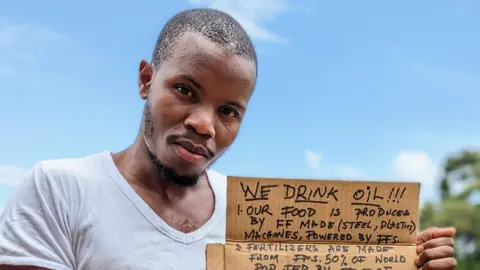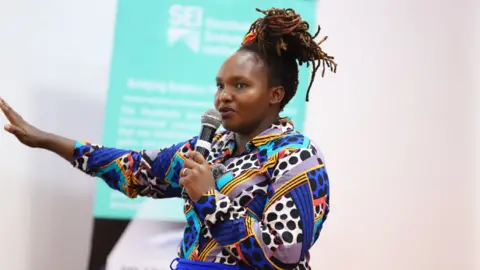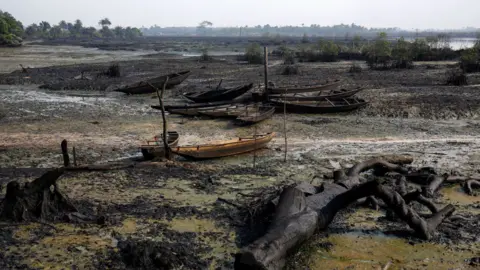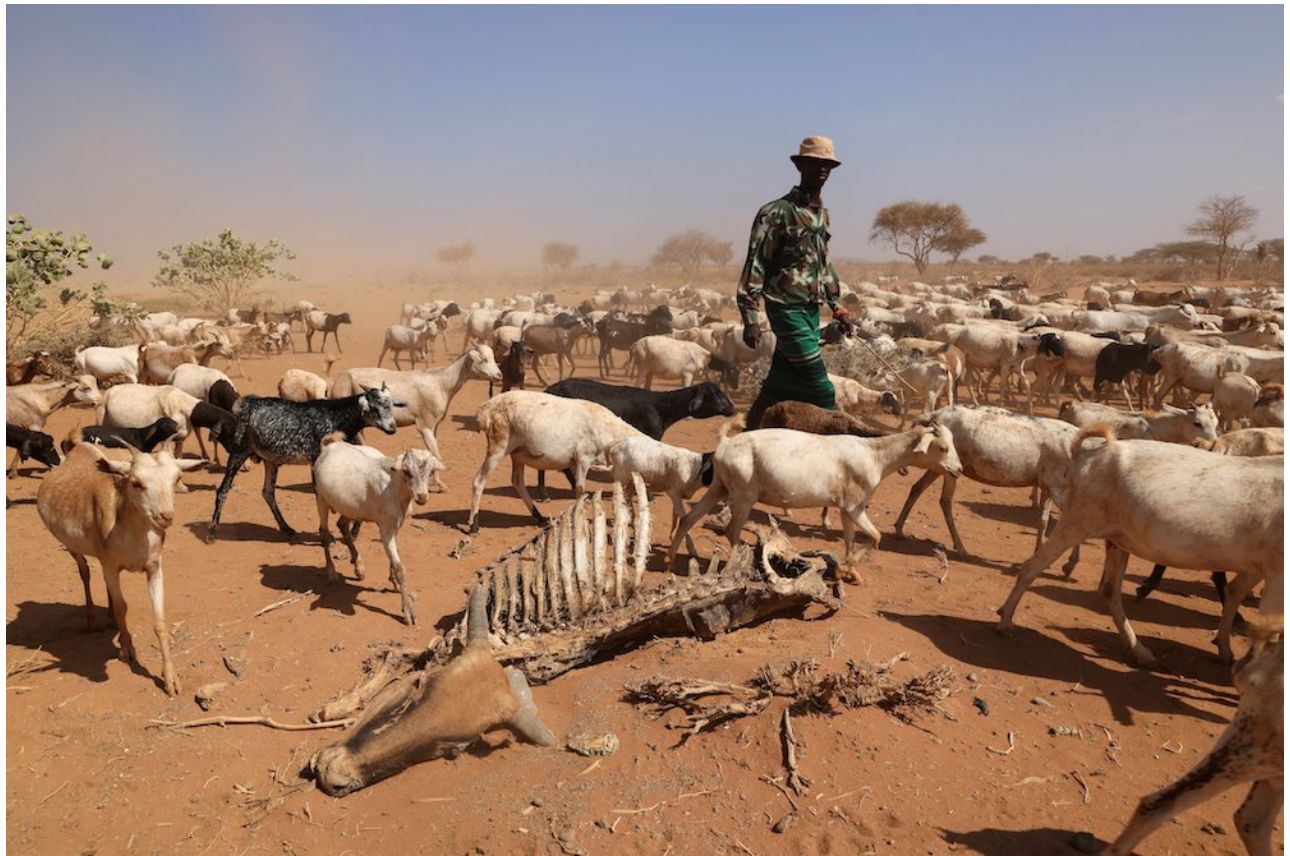 X/JusperMachogu
X/JusperMachoguClimate change deniers have found a new champion in Kenyan farmer Jusper Machogu. On social media, he has become known as a flagbearer for fossil fuels in Africa, but there is more to his campaign than meets the eye.
At first glance, the 29-year-old Mr Machogu is just a young farmer with a knack for social media.
On X, formerly Twitter, he regularly posts videos of himself weeding his land, planting garlic, or picking avocados – offering viewers a window into life in rural Kisii, south-west Kenya.
While farming content may get him clicks, likes, and retweets, it is Mr Machogu’s denial of man-made climate change that has helped supercharge his online profile.
Since he began posting debunked theories about climate change, he has received thousands of dollars in donations – some of which came from individuals in Western countries linked to fossil-fuel interests.
Mr Machogu insists this has not influenced his views, saying they are genuinely held.
Scientists have proven that the Earth is heating up because of greenhouse gases that are emitted into the atmosphere when we burn fossil fuels – like oil, gas, or coal.
But Mr Machogu disagrees.
“Climate change is mostly natural. A warmer climate is good for life,” Mr Machogu wrongly claimed in a tweet posted in February, along with the hashtag #ClimateScam (which he has used hundreds of times).
The Intergovernmental Panel on Climate Change (IPCC) says Africa is “one of the lowest contributors to greenhouse gas emissions causing climate change”.
However, it is also “one of the most vulnerable continents” to climate change and its effects – including more intense and frequent heatwaves, prolonged droughts, and devastating floods.
Despite all this, Mr Machogu continues to insist “there is no climate crisis”.
On social media, he has repeatedly posted unfounded claims that man-made climate change is not only a “scam” or a “hoax”, but also a ploy by Western nations to “keep Africa poor”.
“[His views] are definitely coming up from a place of lack of understanding,” says Joyce Kimutai, a climate scientist from Kenya who has contributed to IPCC reports.
 Dr Joyce Kimutai Joyce Kimutai says Mr Machogu’s views are not shared by many Kenyans
Dr Joyce Kimutai Joyce Kimutai says Mr Machogu’s views are not shared by many Kenyans“This is not religion, this is not just belief. It’s about analysing the data and seeing changes in the data.
“Saying that climate [change] is a hoax is just really not true,” Dr Kimutai added.
Mr Machogu began tweeting false and misleading claims about climate change in late 2021, after carrying out his “own research” into the topic.
Since then, he has launched his own campaign – which he dubbed “Fossil Fuels for Africa” – arguing that the continent should be tapping into its vast reserves of oil, gas, and coal.
“We need fossil fuels to develop our Africa,” Mr Machogu tweeted last year.
This view appears to be shared by some African governments, who have given their go-ahead to new oil and gas projects despite pledging to “transition away” from fossil fuels.
Leaders like Ugandan President Yoweri Museveni have argued that it is hypocritical for Western nations to impose restrictions on African states, when they have become rich from fossil fuels.
But climate activists like 24-year-old Nicholas Omonuk, from Uganda, point out that fossil fuel exploration has not always been a synonym for growth and development in Africa.
“In [Nigeria’s] Niger Delta, there’s been oil extraction since the 1900s, but people there are still poor and are still suffering from health risks and from pollution,” he said.
 Getty Images
Getty ImagesAnd yet, Mr Machogu believes he has found a willing audience for his message – he has more than 25,000 followers on X.
“I think Africans are really embracing the fact that I’m saying: ‘Fossil fuels for Africa’,” he told the BBC.
But by tracking conversations involving Mr Machogu’s X handle, BBC Verify found that most users engaging with his account are actually based in the US, the UK, and Canada.
Many of those users also promote conspiracy theories online – not just about climate change, but also about vaccines, Covid-19, or the war in Ukraine.
However niche its views may be, this online community has thrown its support behind Mr Machogu and helped him fund his campaign.
“Through saying whatever I say, I have seen my follower count going up and I’ve got people reaching out to me saying: how can we help you?,” he said.


